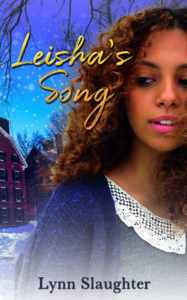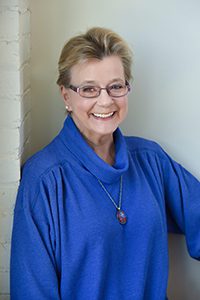 Starting a Novel: One Writer’s Approach by Lynn Slaughter
Starting a Novel: One Writer’s Approach by Lynn Slaughter
As both a writer and a voracious reader, I’m always fascinated learning about the writing process of different authors. There’s definitely no one size-fits all approach. So, my philosophy is to do whatever works!
Here’s what tends to work for me. First off comes a glimmer of an idea. In the case of Leisha’s Song, one came to me standing in line in New York’s Port Authority to board a bus for Connecticut. A grandmother and teenage granddaughter were standing near me, and being the nosey writer I am, I was eavesdropping on their conversation. The granddaughter was heading to boarding school, and she did not want to go. She was leaving all her friends in her neighborhood and didn’t want to go to “some fancy school with uppity white kids.” Her grandmother would have none of that. Her granddaughter was smart, she said, and the scholarship she’d won was her shot at a better life.
That got me thinking about what it would be like to be a whip smart young woman of color at a boarding school where the majority of students came from white, wealthy families.
Okay, so now, I had an idea for a character and a setting. After that, I spent an enormous amount of time thinking and writing about my character and the other principal characters in her world. For me, the most essential thing to dig deeply into is their back story and how their back stories have shaped who they are and how they view the world and their place in it.
For example, in Leisha’s Song, Leisha has grown up as more or less the stand-in for her late mother. With her father not in the picture and her mom having abandoned her and later died of a drug overdose, Leisha has grown up with her widowed grandfather. From the time she’s been identified as academically gifted, her grandfather has poured every one of his deferred dreams into her. He has a whole script laid out for her—Get a scholarship to a prestigious New England boarding school, which she has accomplished, continue to excel academically, which she has—and snare a college scholarship on route to becoming a physician. While she’s inherited her late mother’s singing ability, her grandfather repeatedly tells her that singing is fine as a hobby but certainly not as a career. He’s also been adamant that she never become romantically involved with a white boy, since he blames her mother’s demise on a white man she met at the night club where she was singing.
her mom having abandoned her and later died of a drug overdose, Leisha has grown up with her widowed grandfather. From the time she’s been identified as academically gifted, her grandfather has poured every one of his deferred dreams into her. He has a whole script laid out for her—Get a scholarship to a prestigious New England boarding school, which she has accomplished, continue to excel academically, which she has—and snare a college scholarship on route to becoming a physician. While she’s inherited her late mother’s singing ability, her grandfather repeatedly tells her that singing is fine as a hobby but certainly not as a career. He’s also been adamant that she never become romantically involved with a white boy, since he blames her mother’s demise on a white man she met at the night club where she was singing.
For Leisha, there’s been a lot of payoff in being her grandfather’s golden child and replacement daughter. She loves her grandfather, and he’s enormously proud of her. She gets a lot of accolades for her academic accomplishments. It’s never been a problem for her to be a pleaser.
Right away, from knowing about her background, all kinds of ideas for both internal and external conflict spill out, as I play the “What If?” game. What if her experiences at boarding school cause her to feel conflicted about following her grandfather’s script for her life? What if she falls in love with classical singing and really wants to pursue music rather than medicine? What if, despite her grandfather’s dictums to leave it alone, she can’t bear not to try to find her beloved mentor who suddenly resigns and disappears in the midst of preparing her prize students for a vocal competition? What if she finds herself attracted to another student, a sensitive cellist who happens to come from an ultra-wealthy conservative white family?
Suddenly, she’s way out of her comfort zone and has to figure out who she is and who she wants to be apart from her grandfather’s script for her, as well as what price she may have to pay for following her own path. If she continues to defy her grandfather, he may pull her out of school and away from Cody, her romantic interest. Moreover, she may even end up risking her life to find her missing teacher.
As the mystery writer Elizabeth George advises in her craft books, I’ve found that if I start with character development, all sorts of plot ideas and complications will follow.
But here’s the caveat. I know lots of wonderful writers who don’t do it this way! They get to know their characters in the process of writing their stories and would never spend days and weeks thinking and writing about their characters beforehand.
Are they doing it wrong? Absolutely not! It’s whatever works, and the answer to that question will be different for every writer.
I’d love to know what your process is and what works for you!
~ ~ ~ ~ ~
After a long career as a professional dancer and dance educator, Lynn Slaughter earned her MFA in Writing Popular Fiction from Section Hill University. She writes coming of age romantic mysteries and is the author of the newly released Leisha’s Song; While I Danced, an EPIC finalist; It Should Have Been You, a Silver Falchion finalist; and Deadly Setup (forthcoming from Fire and Ice, 2022). She lives in Louisville, Kentucky, where she’s at work on her next novel and serves as the President of Derby Rotten Scoundrels, the Ohio River Valley chapter of Sisters in Crime.

Lynn,
Thanks for stopping by today. Great information.
Thanks so much for hosting me, Debra!
Loved reading Lynn Slaugther’s description of herwriting style versus other authors. Thanks again for having her.
Joanne,
It was my pleasure. One of the things I like to do on my blog is introduce people to new authors and new ideas or concepts about writing. I hope you’ll follow the blog regularly.
Lynn – Thanks for describing your process, with characterization as the kick off. I am an in-training writer and haven’t yet settled on the best approach for me. I’ll definitely add your process to my mix.
Debra K.,
Glad you stopped by today. Lynn’s perspective is a good one. You can find other people’s thoughts on characterization and characters by checking in the search box for earlier posts.
Oh, gosh, Lynn, I loved getting to know Leisha through your eyes! And I love the way you start your writing. Thank you for sharing this insight!
Liz,
Wasn’t it fun to understand how Lynn developed Leisha and the choices Lynn made in creating the book. Glad you stopped by to check out her blog.
Thanks, Joanne and Liz! I love reading about authors’ processes, because all of us seem to have different ones. It truly is whatever works for you!
I don’t usually read romance nor YA, but now I really want to read about Leisha!! Best of luck with the new book, Lynn!
I am a fortunate friend of Lynn Slaughter who has read all her books. Her perspective in her YA books show us universal truths. You will not be sorry that you read her well-written YA thrillers. I learn from Lynn each time I read her blog posts, her novels and her interviews.
Thank you so much, Beth! I so appreciate your encouragement and support, my friend.
Always enjoy when you leave a comment… or you recommend a YA book as it is top notch. Thanks for stopping by.
Thanks so much, Kass! I’ve been so influenced by Elizabeth George who’s a strong proponent of “start with character”!
Kassandra,
I felt the same way when I finished reading Lynn’s blog.
Always providing another gem to think about. Thanks, Lynn.
Thanks so much, DonnaRae. The whole issue of how we begin our work fascinates me, and we’r all different!
Contrasting your style, DonnaRae (the last blog posted in It’s Not Always a Mystery) and Lynn’s gives a writer a lot to think about and pinpoints how different our processes to reach the same point may be.
Loved writing about your approach. Writing a cozy mystery series, I have come to know my main character probably better than I know my husband :). Now that I have her firmly entrenched in my mind (though she is growing and changing constantly, as we all are), I usually start a new book by thinking of the antagonist. What makes them tick? Why do they feel compelled to commit the crime? And honestly, the impetus for my WIP came from the idea of the death itself, and I built a plot around that. So not only is it a different process for different writers, it may vary from book to book! Thanks for sharing this!
As I noted above, Lynn’s method, DonnaRae’s procedure and now yours all show contrasting styles that reach the same point. That’s what good writing is about.
Lori,
I love the idea of working on the character and backstory of the antagonist! I do that as well, and it really helps!
And I so agree that the initial idea for each novel can come from a different place.